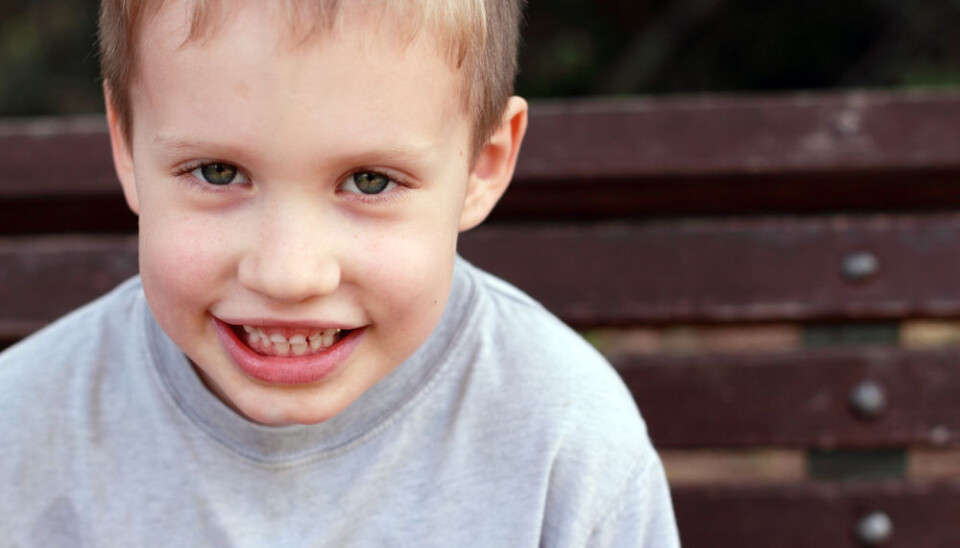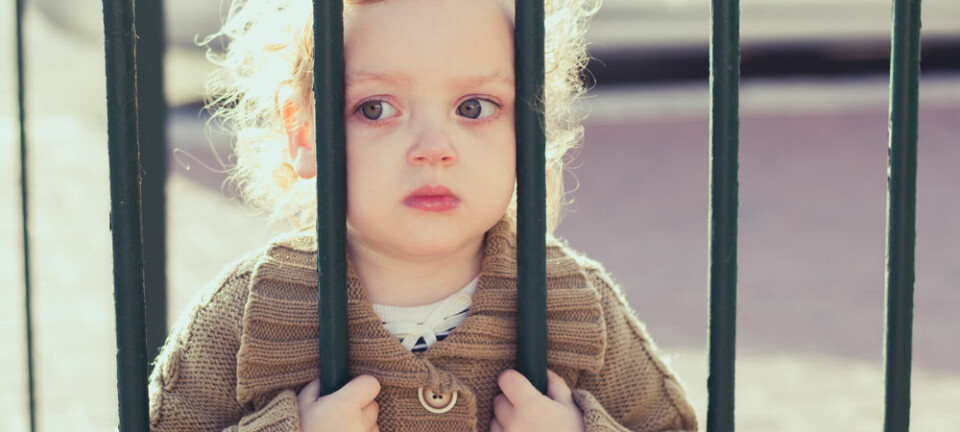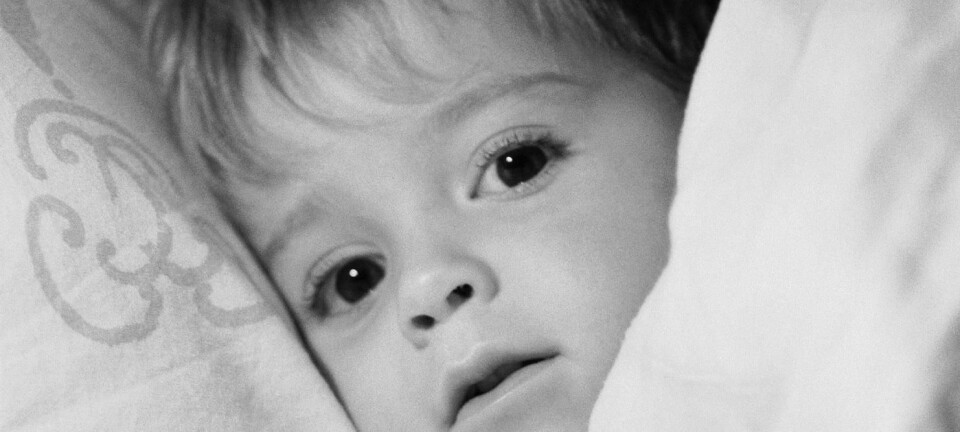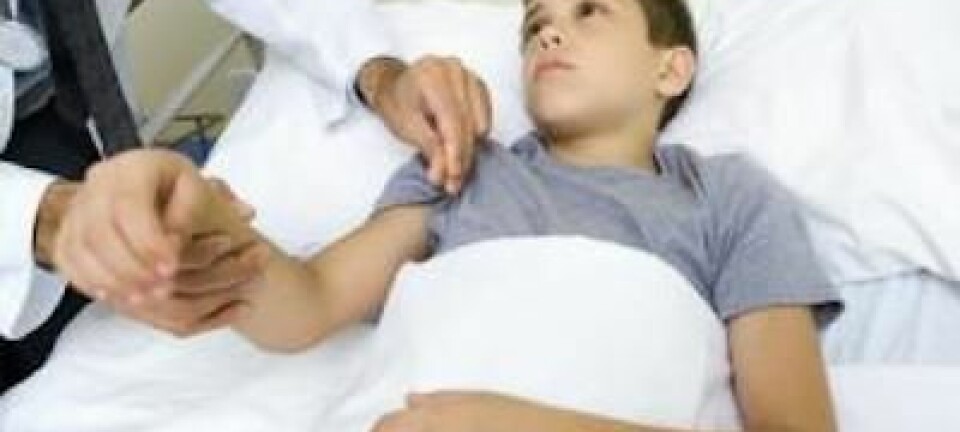
OCD children cured without medicine
Cognitive behavioural therapy can be enough to beat obsessive-compulsive disorder, shows new Danish study.
Children and adolescents who suffer from OCD can greatly benefit from cognitive behavioural therapy (CBT).
This is the conclusion of a new study by researchers from Denmark, Norway, and Sweden, which looked at the effectiveness of CBT treatment on 260 children and adolescents with OCD.
Almost half the children were entirely free of their OCD symptoms after the first phase of the treatment had concluded.
"Frankly, we’re amazed at how effective the treatment is," says Professor Per Hove Thomsen, co-author of the study and psychiatrist at the Regional Centre for Child and Youth Psychiatry at Aarhus University Hospital, Risskov.
“It's a question of the child learning to fight the symptoms of OCD and gradually learning to take control of their own thoughts and behaviour," he says.
The NordLOTS researchers have just published the results of their work with OCD children in the scientific journal Behavior Research and Therapy.
Parents involved in the therapy
The first phase of the project consisted of 13 sessions at the hospital, where the children and their parents came in for an hour and a half of cognitive therapy with a psychiatrist or a psychologist.
The therapists followed a special cognitive therapy manual developed in conjunction with the research project.
"We believe the reason why the treatment is so effective in our study is that we’ve involved the parents to a higher degree than in previous studies. They learn about OCD and the given tools to help them support their children," says Professor Thomsen.
CBT is a powerful form of treatment
OCD researcher Brian Lawrence Odlaug, visiting researcher at the Department of Public Health at the University of Copenhagen, is impressed by the results of the new study.
"It‘s a well-executed study with a strong result,” he says. “The participants had pretty serious problems so the results confirm that cognitive behavioural therapy is a powerful form of treatment that should be offered to all children with OCD." S
Odlaug, who studies OCD at the University of Chicago, has written a number of books about the psychiatric disorder.
He says it is a positive trait that the new Nordic study involved so many children and that the researchers had also involved their parents.
"But if I might permit myself to say something negative about the study, it’s the slightly dubious way they classified the participants in relation to whether the treatment worked or not. They measured the OCD symptoms using a system of points and in the study they consider the treatment to have worked if the participant comes under 15 points after treatment.”
"It's my experience, however, that if you score around 15 points you still have problems," says Odlaug.
Some patients still have problems
Thomsen concedes that some of the patients still have problems after treatment, even though they no longer "had enough symptoms to meet the criteria for a clinical OCD diagnosis".
"After the first phase of the research project, 73 per cent of all the participants were doing so well that their symptoms had fallen below the criteria they would normally have to have to be diagnosed as OCD,” he says. “They may have had some less severe OCD symptoms, but these were not serious enough to give them the clinical diagnosis.”
He adds that almost 50 per cent of the participants were entirely symptom-free upon completion of phase one of the study.
Around 50 participants were still severely hindered by their OCD symptoms upon completing the first 13 sessions of cognitive therapy.
These children and adolescents were then selected to continue treatment in the next phase of the research project, during which they were examined to see whether they benefited most from treatment with medicine or CBT.
What's best -- medicine or therapy?
The 50 children and adolescents were divided into two groups, one of which would continue with cognitive therapy, while the other were given anti-depressants.
"Both groups showed distinct improvements after the second phase of treatment. A further 50 per cent showed symptoms below the criteria for an OCD diagnosis. So the message is that even seriously afflicted groups who aren’t responding to traditional cognitive therapy can benefit from either medication or continued therapy," says Thomsen.
He explains that continued cognitive therapy apparently works just as well on people with serious OCD as medicine does.
It is already part of Denmark's national guidelines that OCD patients be offered cognitive behavioural therapy. However, according to Thomsen there is a shortage of specially trained staff to provide the necessary treatment.
"We have too few psychologists and psychiatrists adequately trained to provide OCD patients with cognitive therapy. It's vital that this area be given higher priority going forward because we in no doubt that it works," says Thomsen.
----------------------
Read the original story in Danish on Videnskab.dk
Translated by: Hugh Matthews
Scientific links
- 'Effectiveness of cognitive behavior treatment for pediatric obsessive-compulsive disorder: Acute outcomes from the Nordic Long-term OCD Treatment Study (NordLOTS)', 2014, Behaviour Research and Therapy, doi:10.1016/j.brat.2014.11.005
- 'The Nordic long-term OCD treatment study (NordLOTS): rationale, design, and methods', 2013, Child and Adolescent Psychiatry and Mental Health 2013, DOI:10.1186/1753-2000-7-41










